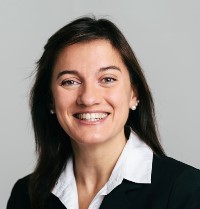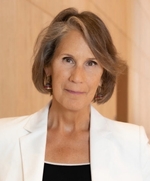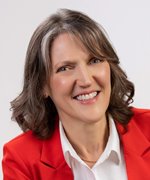FEATURED PAPER
By Teresa Ramos
Salamanca, Spain
Kate Anderson Foley
Illinois, USA
and
Andrea Leven-Marcon
South Africa
- Introduction
“Agile leadership is not about how to implement agile, Scrum, Kanban, eXtreme Programming or lean principles. You have people in your organization who can do that. Being an agile leader is a state of mind” Zuzana Sochova19.
We begin this paper with this quote to clearly differentiate agile leadership from the agile methodologies commonly associated with information technology or software projects11. Agile leadership is a mindset steeped in alternative ways of thinking about, or approaching, situations19.
Agile leadership has its roots in agile methodologies. Understanding agile methodologies and agile mindset is a helpful first step to grasp what agile leadership is, its benefits, and how to become an agile leader to meet the needs and challenges created by changing environments. In today’s rapidly evolving different sectors of the economic landscape, the term agile16 has become a buzzword. It’s a concept that has moved beyond its origins in software development to influence how companies and organizations operate, how teams work and how leaders approach their roles. It appears that every aspect and individual must have an agile flavour to remain relevant.
In this paper, we describe the origins of agile methodologies, explore what this means and uncover the main elements that define agile leadership through the lens of coaching.
We will not cover the remit of technical agile coaches, as defined in agile methodologies1,12. We will show that executive coaches do need to get familiar with agile principles and embrace agility concepts to be effective in coaching agile leaders. It is however essential to keep these two coaching roles separate. Executive coaching for agile leadership is not the same as what is typically known as agile coaching in agile methodologies.
Origin of Agile Methodologies
By the year 2000, the digital revolution had created a landscape filled with volatility, uncertainty, complexity, and ambiguity (VUCA). This highly complex environment rendered traditional approaches to work ineffective, inefficient and too cumbersome. The traditional way of doing things was too slow and rigid; it was no longer valid in a world that was changing at the speed of light1.
In February 2001, a group of 17 software developers, troubled and frustrated by sluggish, inflexible and inefficient conventional practices, gathered at Snowbird, a ski resort in Utah, USA. Their objective was to find better ways to work so that they could keep up with the pace of change of the digital age17.
The outcome of this gathering was the creation of agile methodologies, encapsulated in the Agile Manifesto2. This mindset revolves around being adaptable, flexible and collaborative. One important aspect is that agile thinking is not just about speed; it’s about simplifying complexities, embracing flexibility, and quickly adapting to change. 2
More…
To read entire paper, click here
How to cite this paper: Ramos, T., Foley, K. A., Leven-Marcon, A. (2024). Agile Leadership and Coaching; PM World Journal, Vol. XIII, Issue XI, December. Available online at https://pmworldlibrary.net/wp-content/uploads/2024/12/pmwj147-Dec2024-Ramos-Foley-Marcon-Agile-Leadership-and-Coaching.pdf
About the Authors

Teresa Ramos
Salamanca, Spain
![]()
Teresa Ramos is a senior executive with a diverse background bridging technology, business, and academia. Armed with degrees in theoretical physics, music, telecommunications engineering, and an executive MBA, Teresa has over 23 years of executive experience with global tech giants like British Telecom, Vodafone, Telefónica, and Siemens. Her leadership roles were pivotal in driving digital transformations at BT Europe and Infineon, part of Siemens, where she spearheaded innovation initiatives company wide. Trilingual in Spanish, English, and German, Teresa’s global outlook is enhanced by her extensive work in various countries and collaboration with prestigious academic and public institutions like Harvard University, where she is a Fellow at the IoC (Institute of Coaching), Stanford University, where she is an Innovation Champion and United Nations where she is a mentor and trainer. She is based in Spain and works globally.
Teresa helps leaders navigate the complexities of the digital world, fostering innovation and Agile leadership. She can be contacted at (4) Teresa Ramos Martin | LinkedIn

Kate Anderson Foley, PhD
Illinois, USA
![]()
Kate Anderson Foley, Ph.D. is Founder & CEO of the Education Policy & Practice Group, International Keynote, McLean Affiliate of Harvard Medical School Institute of Coaching Fellow, Thought Partner, Author.
Kate Anderson Foley is a transformational leader with significant experience leading public school districts and states toward equitable and integrated services for all learners. Her work has been grounded in social justice and breaking down barriers for children who have historically been marginalized. She has led organizational change utilizing a strategic framework that ensured guaranteed and rigorous learning leading to college and career readiness for all students.
Kate began her career as a special education teacher pioneering inclusive practices for students at risk and with disabilities. Her work focused on creating conditions that fostered high expectations of adults for students and innovation which catalyzed equitable opportunities for each learner. Kate’s deep commitment to creating nimble and responsive systems that supported the whole child led her into administration where she advocated for local, state, and federal reform. That experience with large-scale reform led to improved academic and social emotional outcomes for students, fair funding models, innovative healthcare models, and efficient operations.
As a senior educational leader for the State of Illinois, Kate’s vision of fulfilling the promise of the Individuals with Disabilities Education Act was nested within the Every Student Succeeds Act. She was an expert contributor to the State Plan where the deficit-based system was interrupted and a preventative and nimble system was created that intentionally addressed opportunity gaps of all learners, regardless of background or circumstance. Her deep understanding of equity-based school funding also contributed to a legislative reform model for the state of Illinois.
As the founder and CEO of The Education Policy & Practice Group, Kate partners with local, state, national, and international organizations, education agencies, and various industries providing her expertise with the improvement process, professional learning communities, strategic planning, asset-based education policies and practices, special education, coaching,
and consulting. Kate is a Roslyn Wolf Lecturer with the Levin College of Public Affairs in Urban Education. Kate teaches a graduate level Special Education Law course to aspiring superintendents and principals. Kate works closely with senior leadership across various sectors providing executive coaching aimed at creating growth-minded organizational cultures (www.edpolicyconsulting.com).
Kate is the author of numerous articles and books including Ida Finds Her Voice and Fearless Coaching. Kate’s new book, Radically Excellent School Improvement: Keeping Students at the Center of it All presents a model for ambitious improvement and tireless focus that ensures every student grows, thrives, and achieves to their fullest potential. It provides district and school leaders with a bold blueprint for designing, implementing, and monitoring a comprehensive school improvement process for radical excellence (https://us.corwin.com/books/radical-excellence-289045).

Andrea Leven-Marcon
South Africa
![]()
Andrea Leven-Marcon, MA (Leadership), CEC, PCC, Andrea is an Executive and Leadership Coach with multiple decades of multi-faceted business, leadership development, and technology experience gained across multiple industry sectors in South Africa, Canada and internationally.
In her formative career years, Andrea honed her skills as an economist, business and financial analyst. Thereafter, she moved to the vendor side of information technology where she sold, and managed sales, of Enterprise Resource Planning, Human Resources, Workforce Management, and Scheduling systems. During this tenure, she spearheaded and developed new business in multiple industry sectors across North America and Europe. Andrea’s early career experiences led her to focus on the strategic commercialization of technologies and she subsequently worked and consulted with both established and start-up companies to significantly develop business.
After completing an MA in Leadership and Executive Coaching accreditations, Andrea moved into the field of leadership development where she led the development and delivery of international leadership learning programs specifically focused on Information Technology teams. Throughout her career, Andrea has focused on client engagement, brand and talent leadership development, strategy, and business development.
Andrea’s undergraduate degrees are a Bachelor of Economic Science Degree from the University of the Witwatersrand, and an Honours Bachelor of Commerce from the University of South Africa, both specializing in Economics and Business Information Systems design. Andrea advanced her academic studies and graduated from Royal Roads University with a MA Leadership in 2013 and as a Certified Executive Coach in 2017. She is also an International Coach Federation PCC accredited coach and is currently studying towards an advanced team coaching accreditation. Andrea is also a McLean Affiliate of Harvard Medical School Institute of Coaching Fellow. Andrea’s MA thesis, Organizational Sustainability and Volunteer Engagement, focused on sustainable organizational environments, engagement, and organizational learning.









